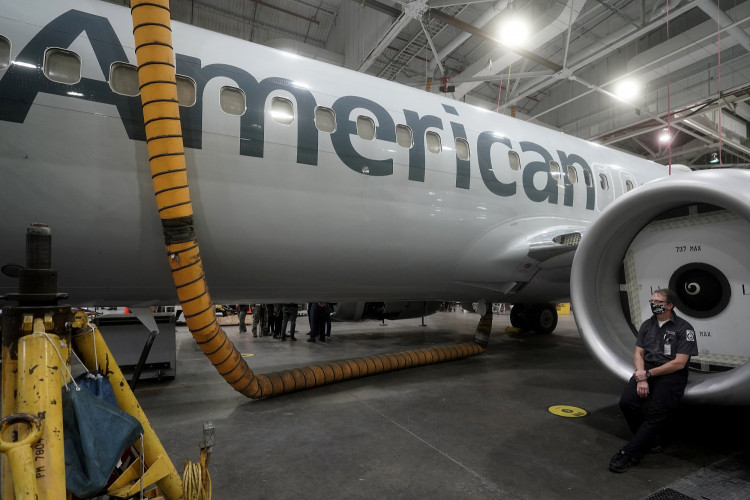Boeing has come under fire from U.S. regulators after the National Transportation Safety Board (NTSB) accused the aerospace giant of "blatantly violating" its investigative protocols. The controversy centers around a door plug blowout incident involving a Boeing 737 Max 9 operated by Alaska Airlines in January, which left a gaping hole in the aircraft.
The NTSB stated that Boeing disclosed non-public information and speculated on the causes of the incident during a media briefing, actions that contravened a signed agreement with the agency. The briefing, held by a Boeing executive, revealed details about the NTSB's ongoing investigation, including unverified information regarding the January 5 incident in Portland, Oregon, where a panel designed to cover an emergency exit blew off mid-flight. Despite the alarming nature of the incident, pilots managed to land the plane safely, and no injuries were reported.
"We apologize to the NTSB and stand ready to answer any questions as the agency continues its investigation," Boeing said in a statement on Thursday, expressing regret that the briefing overstepped the NTSB's role.
The NTSB, which cannot impose fines but has considerable authority over investigative protocols, has sanctioned Boeing by restricting its access to information generated during the investigation. The agency emphasized that it would maintain Boeing's party status to the investigation due to the company's technical expertise but underscored that Boeing would no longer have privileged access to certain data.
Boeing's infraction has prompted the NTSB to collaborate with the Department of Justice's Fraud Division, potentially leading to further legal ramifications for the company. The Justice Department is already scrutinizing Boeing's compliance with a previous settlement agreement related to two fatal crashes involving the 737 Max aircraft in 2018 and 2019, which resulted in the deaths of 346 people. These crashes had led to the global grounding of the 737 Max fleet for over a year and a half.
During the recent Senate hearing, Boeing CEO David Calhoun faced intense scrutiny over the company's safety practices and the adequacy of its responses to previous safety failures. Lawmakers criticized Calhoun for allegedly prioritizing profits over safety and for insufficiently supporting whistleblowers. Despite calls for his immediate resignation, Calhoun has announced plans to step down by the end of 2024.
The NTSB's sanctions follow Boeing's disclosure during the media briefing that the company viewed the investigation as an effort to identify the individual responsible for the door plug work. The NTSB refuted this characterization, clarifying that its investigation focuses on determining the probable cause of the incident, not assigning blame to any one person.
In response to the NTSB's findings, Boeing's spokesperson acknowledged the company's missteps, stating, "We deeply regret that some of our comments, intended to make clear our responsibility in the accident and explain the actions we are taking, overstepped the NTSB's role as the source of investigative information."
The NTSB's punitive measures against Boeing include the possibility of issuing subpoenas for any necessary documents during the investigation. The agency has also scheduled an investigative hearing in Washington D.C. on August 6 and 7, where Boeing will be required to participate but will not be permitted to question other participants.
The incident has exacerbated Boeing's ongoing legal and regulatory challenges. The company's reputation, already tarnished by the 737 Max crashes and subsequent grounding, faces further scrutiny as the NTSB coordinates with the Department of Justice. In May, the Justice Department reported to a federal judge that Boeing had violated the terms of a previous settlement agreement, raising the prospect of criminal charges.





